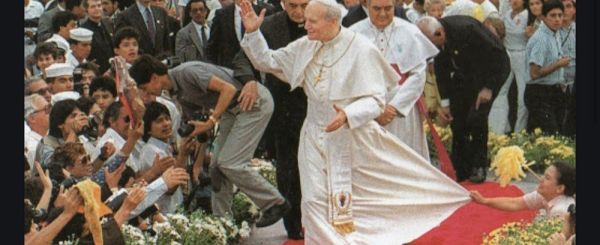First and principal meaning of penitence is interior, spiritual. The principal effort of penitence consists "in entering oneself", one's deepest being, entering this dimension of one's own humanity in which, in a certain sense, God is waiting for us. The "exterior" man must
— I would say — yield, in each of us, to the "interior" man and, in a certain sense, "make way for him". In current life, man does not live enough on the "interior" plane. Jesus Christ clearly indicates that also acts of devotion and penitence (such as fasting, charity, prayer) which because of their religious finality are mainly "interior", may yield to the current "exteriorism", and can therefore be falsified. Penitence, on the contrary, as turning to God, requires above all that man should reject appearances, succeed in freeing himself from falsity, and find himself again in all his interior truth. Even a rapid, summary look into the divine splendour of man's interior truth is already a success. It is necessary, however, to consolidate this success skilfully by means of systematic work on oneself. This work is called "ascesis" (it had already been given this name by the Greeks of the times of the origins of Christianity). Ascesis means an interior effort not to let oneself be swept along and pushed by the different "exterior" currents, in such a way as to remain always oneself and keep the dignity of one's own humanity.
But the Lord Jesus calls us to do something more. When he says "go into your room and shut the door", he indicates an ascetic effort of the human spirit, which must not end in man himself. That shutting-in of oneself is, at the same time, the deepest opening of the human heart. It is indispensable for the purpose of meeting the Father, and must be undertaken for this purpose. "Your Father who sees in secret will reward you." Here it is a question of acquiring again the simplicity of thought, of will, and of heart which is indispensable to meet God in one's own "self". And God is waiting for that, in order to approach man who is absorbed interiorly and at the same time open to his word and his love! God wishes to communicate himself to the soul thus disposed. He wishes to give it truth and love, which have their real source in him.
[Pope John Paul II, General Audience 28 February 1979]












